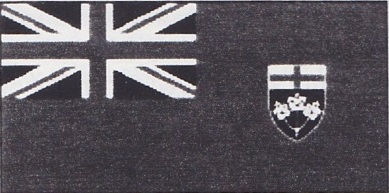
PART IV
THE HOME STRETCH
Bournemouth Again
I spent six weeks at the beautiful seaside resort of Bournemouth from May 27 to July 7, 1945. It was a time for recuperation and enjoyment. We were not skin and bones as shown in concentration camp photos but all of us had lost a lot of weight during the final months in Germany. To hasten our return to full health we ate in a designated dining facility where there was a special menu. I recall there were pictures of milk on each table and carloads of vitamin tablets.
We were billeted at the Royal Bath Hotel in downtown Bournemouth, four to a room. Parky was with me along with Jack Parr, now of Midland and Fred Wilson who lived at the Toronto Beaches pre‐war. We could come and go as we liked and there was an occasional parade to bring us up to date on repatriation plans. On the second day at Bournemouth my kit arrived with all my belongings. It had been stored for safekeeping at Uxbridge, a central depot, in England while I was cooling my heels in the Fatherland. Almost everything was intact and I was especially interested in my uniform, shirts etc. so that I could get into some fresh duds. I had two dress uniforms both as good as new and sold one of them to Scoop Houston who was shot down before he had a chance to order an officer's uniform. Regrettably the quick release box from my parachute harness was missing. It had been in my dresser drawer at Leeming and apparently seized as Air Force property. It was this circular piece of metal that was gouged by the shard of flak over Frankfurt and probably saved my life. It would have been a great keepsake.
In the first few days there were administrative matters to look after. I was interviewed by an Intelligence Officer who wanted precise details concerning the fighter attack, the condition of the aircraft and my actions and those of the crew. He also wanted to know about my experiences in Holland and in the German prison camps. There was all very straightforward and obvious that the British authorities wanted a comprehensive report for record purposes. It would be interesting to read that report now if that were possible. I had a medical checkup and other than some loss of weight I was pronounced fit as a fiddle and okayed for flying duties.